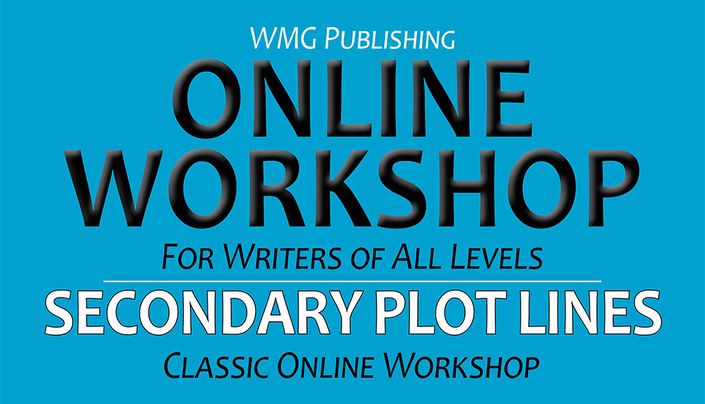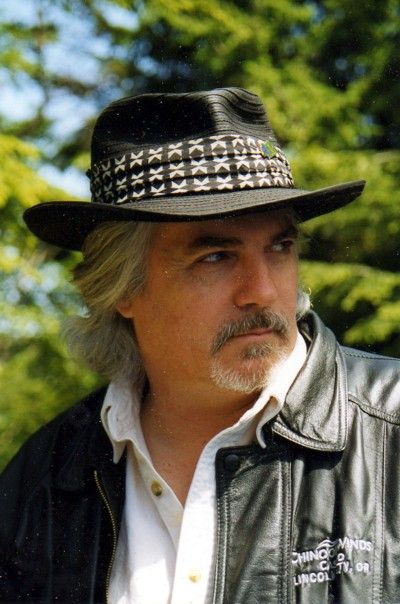
Secondary Plot Lines Classic Workshop
Understanding secondary plot lines in a novel make the writing so much easier and your book more interesting.
Most novels have secondary plot lines.
This workshop helps you understand and build those secondary plot lines.
Ever read a book that you finished and it felt thin? As a reader you wished the author would have also done more with other characters in the book?
Secondary plot lines are critical in many novels. And not needed in others. Knowing when to add them and how and when to leave them out can be learned.
To learn how to construct secondary plot lines as you write a novel, you must first learn how the interaction of plot lines inside a novel work. That's the first area we will cover in this workshop. Main plots and secondary plots. And how they work together to form a whole.
In other words, this will be a major workshop on novel plotting.
If you do not understand the concept of secondary plot lines, tune in any of the major television dramas such as NCIS or Hawaii Five-O or even comedy such as The Big Bang Theory. All run a major plot thread and a second plot line every episode.
So here are just a few of the areas we will cover in this expansive workshop...
--- What is needed in a novel plot and the difference from genre to genre.
--- How much do you weigh a secondary plot line in a novel? How much time do you give it?
--- How to run more than one secondary plot line at the same time. (Often done in thrillers.)
--- The themes and elements of craft needed to hold a secondary plot in place and not make it feel glued onto the main plot thread.
--- How do you move from one plot line to another with scene jumps, cliffhangers, pov shifts, and so on.
--- Teams and how they work in secondary plot lines. Often it is a team member or two that runs secondary plot lines. (If you are confused about teams and their place in fiction, you might want to take the Teams online workshop before this workshop.)
--- When and when-not-to use secondary plot lines in a novel. And how and when to end a secondary plot line without disappointing a reader.
--- And most importantly, how do you even write a secondary plot line when writing into the dark? How does that even work?
This is a very expansive workshop covering a lot of plotting elements. It will help you be far, far more comfortable with the novel structure and plotting in general by the time you are finished. We can promise that much at least.
No matter what is said in the video, this is a classic workshop, so please do not send in any assignments. But it is a good idea to do them for yourself to get the most out of the workshop.
Your Instructor

With over twenty-three million copies of his books in print, USA Today bestselling writer Dean Wesley Smith now brings you original fiction every month for the past three years in his own magazine, Smith’s Monthly.
Dean wrote over twenty-five original Star Trek novels, the only two original Men in Black novels, plus Spider-Man, X-Men, Iron Man novels, and others. He wrote many gaming novels including Final Fantasy.
He wrote novels and stories under almost fifty pen names and did scripts for Hollywood as well as being an editor for various magazines. He lives in Las Vegas with his wife, writer Kristine Kathryn Rusch. You can follow his writing life at www.deanwesleysmith.com
Course Curriculum
-
StartPlot Line Week #1, Session #1... The size and scope of this class. (5:11)
-
StartPlot Line Week #1, Session #2... Weight and viewpoint on a plot line. (5:33)
-
StartPlot Line Week #1, Session #3...Who is the book about. Main and secondary plot focus. (5:50)
-
StartPlot Line Week #1, Session #4... Look to television for examples. (6:47)
-
StartPlot Line Week #1, Session #5...Series. Continuing secondary plot lines over many books. (5:31)
-
StartPlot Line Assign #1 (2:34)
-
StartPlot Line Assign #1 Response (4:33)
-
StartPlot Line Week #2, Session #1... Balance and Focus (5:47)
-
StartPlot Line Week #2, Session #2... Size and Length (4:07)
-
StartPlot Line Week #2, Session #3... Connectivity (5:19)
-
StartPlot Line Week #2, Session #4... Reader knows more... (5:46)
-
StartPlot Line Week #2, Session #5... Do you always need secondary plot lines? Assumed plot line. (7:18)
-
StartPlot Line Assignment #2 (5:21)